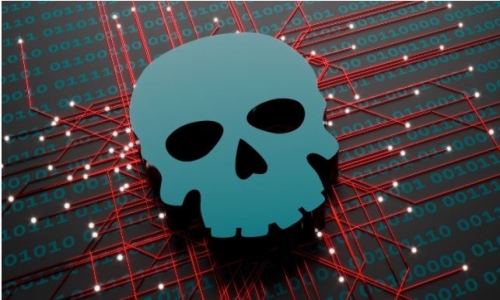


 2:45:24
2:45:24  2019-05-05
2019-05-05  994
994

An Alzheimer's diagnosis often relies on signs of memory problems. However, these issues usually do not appear until years after the disease has taken hold. A new smartphone game is using spatial navigation to detect Alzheimer's before it is too late.
Another person develops Alzheimer's disease every 3 seconds, according to Alzheimer's Disease International. The number of people living with this most common form of dementia currently stands at around 50 million. By 2050, experts expect this figure to have tripled.
The last "significant breakthrough" in Alzheimer's research happened 4 decades ago, states the latest World Alzheimer's Report. However, a recently developed smartphone game may alter that statistic.
"Research shows us that the brain changes associated with diseases like Alzheimer's begin decades before symptoms like memory loss start," says Hilary Evans, chief executive at Alzheimer's Research United Kingdom.
"[F]or future Alzheimer's treatments to be effective, it's likely they must be given at the earliest stages of disease, before there's too much damage to the brain."
Navigating space
A collaboration between the organization, the University of East Anglia (UEA) and University College London in the U.K., and Deutsche Telekom has resulted in a game that may help experts detect who is at risk of Alzheimer's.
"We often hear heartbreaking stories about people with dementia who get lost and can't find their way home," continues Evans, adding that spatial navigation issues "are some of the earliest warning signs for the condition."
Such problems are the focus of the Sea Hero Quest game, which encourages players to find their way around various mazes. So far, more than 4.3 million people across the globe have tried it.
In the current study, which features in the journal PNAS, the researchers compared how different people played the game and found some interesting results. They analyzed data from more than 27,000 U.K. players between the ages of 50 and 75 years and also recruited a lab group of 60 individuals for genetic testing.
A game changer
Genetic testing revealed that 31 of the participants in the smaller group had the APOE4 gene. Carriers of this gene are almost three times more likely than other people to develop Alzheimer's disease, and it tends to appear when they are younger.
When the team compared the lab group data with the benchmark data, they could distinguish between those with and without the APOE4 gene based on the way that they played Sea Hero Quest.
Those with a genetic predisposition to Alzheimer's "took less efficient routes to checkpoint goals" and "performed worse on spatial navigation tasks," notes Prof. Michael Hornberger from the UEA, who is the lead researcher. "This is really important because these are people with no memory problems."
Waiting until someone demonstrates memory issues to diagnose Alzheimer's may be too late, adds Prof. Hornberger, because such symptoms occur "when the disease is quite advanced."
"[E]merging evidence shows that subtle spatial navigation and awareness deficits can precede memory symptoms by many years."
In fact, a routine memory test was ineffective in recognizing the difference between those who were and were not at risk of the disease.
Assisting diagnosis
Having the ability to detect Alzheimer's risk with a simple game could, therefore, help create more effective diagnosis methods. It could also assist with future treatment.
The number of people who have willingly chosen to play the game is a considerable strength. According to researchers, 2 minutes of game time is the equivalent of 5 hours of lab-based study.
Gillian Coughlan from the UEA describes the project as providing "an unprecedented chance to study how many thousands of people from different countries and cultures navigate space."
"It demonstrates the power of harnessing large-scale citizen science projects and applying big data technologies to help improve the early detection of diseases like Alzheimer's."
Gillian Coughlan
"This is the tip of the iceberg, and there is still a lot more work to do to extract and capitalize on the wealth of data collected."
By Lauren Sharkey, Medical News Today
Reality Of Islam |
|

A computer

Auburn Univ

Poisoning i

Water may s
 9:3:43
9:3:43
 2018-11-05
2018-11-05
10 benefits of Marriage in Islam
 7:5:22
7:5:22
 2019-04-08
2019-04-08
benefits of reciting surat yunus, hud &
 9:45:7
9:45:7
 2018-12-24
2018-12-24
advantages & disadvantages of divorce
 11:35:12
11:35:12
 2018-06-10
2018-06-10
 6:0:51
6:0:51
 2018-10-16
2018-10-16
bahlool & the throne of haroun rashid
 8:20:35
8:20:35
 2018-06-21
2018-06-21
 8:30:23
8:30:23
 2022-03-03
2022-03-03
 5:58:12
5:58:12
 2021-12-18
2021-12-18
 9:30:2
9:30:2
 2021-11-12
2021-11-12
allah will not answer all your prayers
 6:56:28
6:56:28
 2022-01-01
2022-01-01
 10:47:11
10:47:11
 2022-11-22
2022-11-22
 8:39:51
8:39:51
 2022-09-23
2022-09-23
 5:41:46
5:41:46
 2023-03-18
2023-03-18
| LATEST |